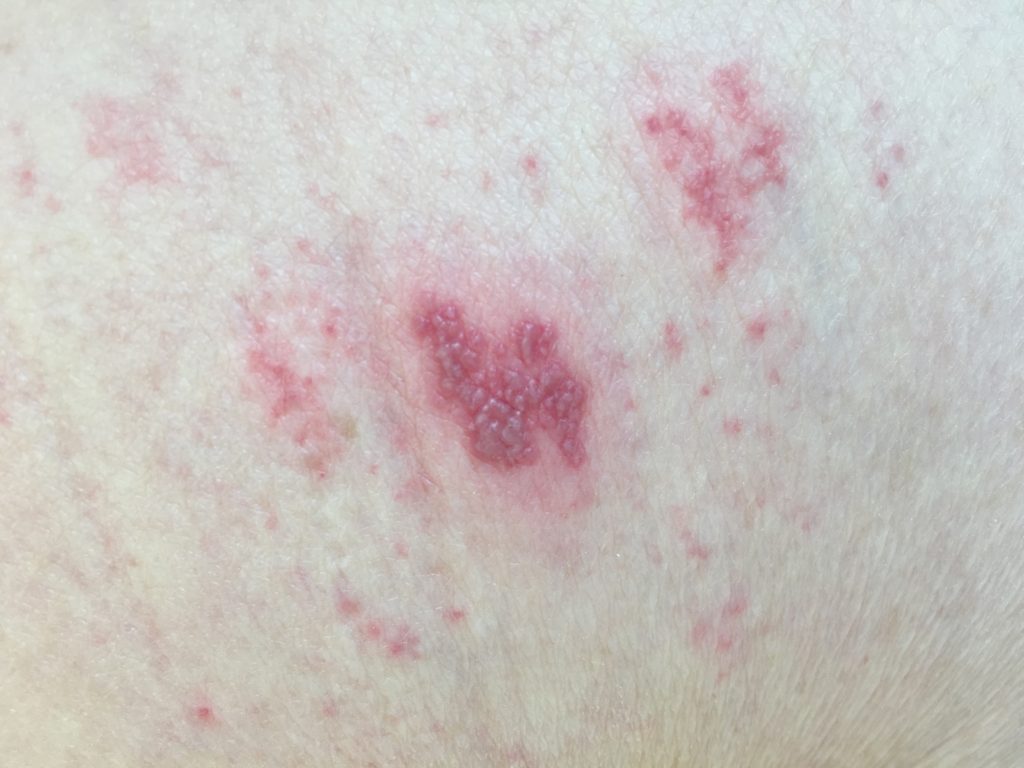Shingles
SHINGLES
As a dermatologist, hardly a week passes without shingles coming up in my conversations with patients. In this post, I’ll answer questions about shingles. Honestly, for me, after 15 years of being in dermatology, it has become harder, not easier, to diagnose shingles. Shingles has become increasingly sneaky and difficult to diagnose with the advent of the shingles vaccine. Patients who have received the shingles vaccine often present with milder cases that are MUCH harder to diagnose. What causes Shingles? Shingles is caused by the Varicella Zoster Virus (VZV), the same virus that causes chickenpox. After chickenpox, the virus continues to live in the nerve. At times of high stress and illness, the virus reactivates. Shingles affects the body in two ways: nerves and skin. Inflammation of the nerve may present with pain, itching or tingling. Inflammation of the skin usually leads to a blistering rash in a limited area of the body, called a dermatome.

Is Shingles Contagious?
Shingles is generally only contagious with skin to skin contact. Pregnant women, unimmunized children, and immune-compromised patients may be at higher risk of contracting shingles.
How is Shingles treated?
Shingles is treated with oral antiviral pills, acyclovir, famciclovir, and valacyclovir. Often Dr. Rosenberger will recommend a loading dose of THREE Famciclovir 500mg at the first sign of shingles to shut down the reaction as quickly as possible. Many studies have evaluated other ways of treating shingles. Most studies agree that the most important determinant of good outcome and less long-term pain is prompt treatment with antiviral pills.
Should I get the shingles vaccine?
The shingles vaccine is a little unusual. Generally, vaccines prevent us from contracting a virus. In the case of shingles, most adults are already immune from having chicken pox as a child. So how does the shingles vaccine work and is it really needed? Scientific studies showed that the original shingles vaccine reduced the likelihood of getting shingles. Those who did get shingles post vaccine had a milder case and less pain after shingles.
What is the difference between the shingles vaccines? Which one should I get?
The first shingles vaccine was Zostavax (2006). Scientific studies showed that the original shingles vaccine reduced the likelihood of getting shingles by 50% per year. Those who did contract shingles
post vaccine had a milder case and less pain after shingles. This single dose vaccine lasts 5 years and currently is recommended for adults age 60 and up. The newer shingles vaccine is called Shingrix (2017). This two-dose vaccine is recommended for those 50 and up and reduces the likelihood of shingles by 90%. As with Zostavax, those who did get shingles post vaccine had a milder case and less pain after shingles.
What is post-herpetic neuralgia? The most dreaded complication of shingles is pain and discomfort in the area where shingles occurred that can last months to years after a shingles outbreak. This can be severe and debilitating. Dr. Rosenberger generally recommends those with neurologic systems see a neurologist.
If you find these blog posts helpful, please share them on facebook, twitter or your social media preference using the buttons above. Also, you can email them to a friend.
If you would like to receive these posts in your email inbox Subscribe to our Site by clicking on this link.
